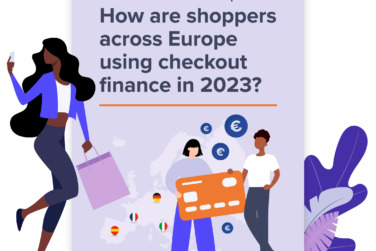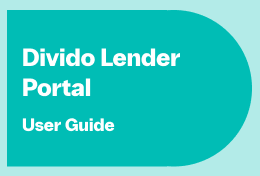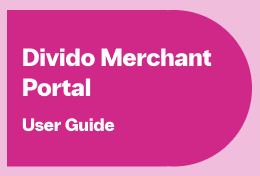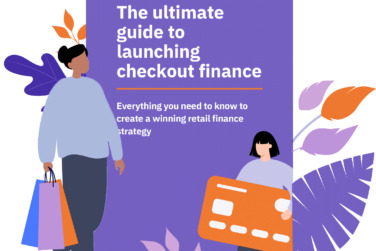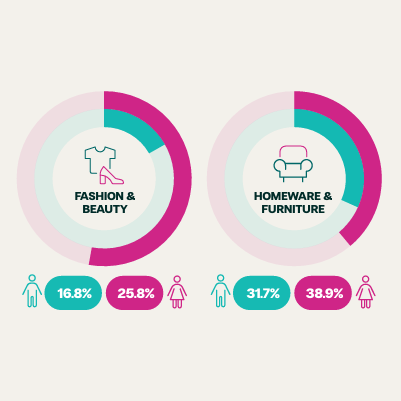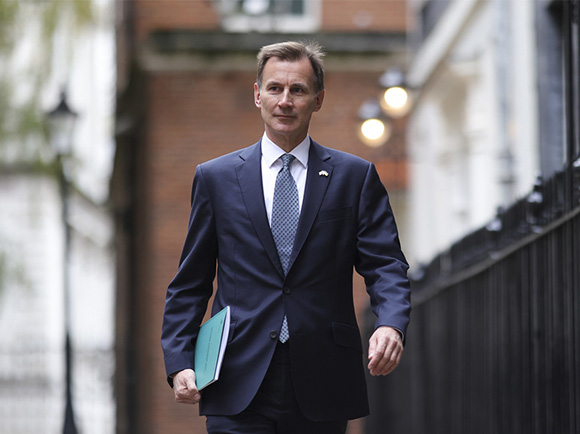What is your duty of care when it comes to BNPL, and why does it matter?

Is it ethical to encourage consumers to make purchases they otherwise couldn’t afford?
A recent study by Barclays Bank andx the UK debt charity StepChange looked into customers’ spending habits when using Buy Now, Pay Later (BNPL) and found that nearly a third were in unmanageable debt, with the average BNPL user responsible for 4.8 lines of credit.
This figure had jumped up from 2.8 in February 2022, which was before the cost-of-living crisis started. It is therefore believed more consumers are turning to retail finance as their disposable income starts to dry up.
For merchants offering BNPL at the checkout, this poses the question of where exactly their responsibility lies. Providing an alternative way to pay is one thing, but could retailers be unwittingly ushering their customers into debt?
For merchants offering a retail finance payment option, it is essential they start to consider the implications of this function, asking the question of whether it may be contributing to consumer harm.
At a time when shoppers are becoming more conscious than ever of their spending, retailers must be alert to the risk of their brand’s association with BNPL leading to accusations of increasing financial pressure on customers.
That’s not to say retailers should turn their noses up at BNPL altogether. Indeed, increasing consumer appetite suggests that retail finance is becoming more popular and more essential than ever. However, they should nonetheless be taking steps to limit the potential risk and impact on their customers, ensuring the sustainability of their business model while protecting their brand reputation.
So, what exactly is your duty of care when it comes to BNPL, and why does it matter?
Why is BNPL so popular amongst consumers?
Aside from the obvious benefits of improved money management and flexibility, BNPL provides almost instantaneous access to credit.
Its characteristically frictionless customer journey makes it easy for shoppers to purchase items they otherwise could not afford with very little hassle.
From a psychological standpoint, this makes sense. Humans discount future losses assuming they won’t be as bad as they are.
The reality, of course, is that the losses are no different. Paying £50 for a pair of trainers next week is the same as paying £50 today.
The situation can in fact be much worse, if the consumer has delayed an unmanageable number of payments.
While discounting begins to explain why BNPL is appealing to consumers, there is something else at play.
One BNPL provider, eager to understand the mechanisms behind their product, commissioned a study with the University of Reading that researched the psychological and emotional factors at play during the act of buying now, paying later.
The research revealed that the less a consumer is required to input data, the more likely they are to make an unreasonable purchase.
A lack of friction, it would seem, encourages impulsivity.
Our tendency to discount future losses combined with minimal friction is a potent mix.
State of the market
No wonder, then, that the popularity of BNPL is causing concern among consumer groups.
By focussing solely on the seamlessness of their journey, providers have created a customer journey that ignores the real risk to vulnerable consumers. This has led to some customers falling into unmanageable debt as a result.
One of the factors that has accelerated this untoward circumstance is the fact that BNPL currently operates in an unregulated market, meaning the usual safeguards and due diligence that would apply for other financial products do not necessarily apply to this sector.
For instance, hard credit checks are currently not required to complete a BNPL application. Nor are providers obligated to report their transactions to credit reference agencies (though there has been progress in this area), or to submit to regulation by the Financial Conduct Authority (FCA). This has facilitated some murky lending habits amongst industry players, giving the sector notoriety within the media.
Critics cite a lack of clarity in the communications surrounding BNPL as one of the key reasons why consumers are falling into unmanageable debt.
There are fears that some consumers are entering into credit agreements without fully understanding what they are undertaking. This is particularly alarming when one considers that many direct-to-consumer BNPL brands target younger consumers, who have by and large been fueling the boom. No wonder, then, that younger consumers are more likely to fall into debt and borrow to pay off their BNPL purchases, according to Citizen’s Advice.
If a lack of friction is rocket fuel for impulsivity, questions of ethics are raised when retailers apply this to products that are bought impulsively.
However, it would not be fair to paint the entire industry with the same brush. Many retail finance providers have been very mature about their approach to lending, with many choosing to self-regulate. These financial institutions typically provide credit for higher ticket items.
Restrictions on BNPL are tightening as regulators begin slowly closing the CCA exemption loophole. A recent update on the UK Government’s consultation into the BNPL market stated that the FCA would regulate the market by mid-2023.
But, as the cost of living crisis is increasingly forcing consumers to defer payments for even everyday essentials like fuel, shopping, and energy, the roll-out of regulation has been criticised for occurring too slowly.
This deepens the moral dilemma merchants may face. Offer retail finance to boost sales during a period of difficult trading and risk harming consumers and your business’ reputation? Or, forgo increased sales, profitability and competitiveness to avoid any potential fallout?
The key must surely be to strike a balance. Businesses can approach BNPL in an ethically sound manner. In order to do so, they must consider their end-users and adhere to a duty of care.
What is your duty of care?
Merchants have a duty of care to their consumers to ensure they are protected, particularly in lieu of regulation. Customer care should be at the heart of every aspect of your checkout finance offering. Indeed, the FCA’s newly proposed Consumer Duty will soon ensure firms are working harder to protect consumers.
With that said, here are five ethical guidelines that merchants may wish to follow when offering checkout finance products:
1. Signpost your checkout finance product appropriately
Clearly communicate your checkout finance offering. This will be mandatory in forthcoming legislation, so it’s worth doing right away.
Ensure your customer knows that they are entering a finance agreement by providing a little bit of friction within the process. No legalese, no jargon, nothing too long; a simple transparent indication of the repayment terms will do the trick.
Not only does this protect your consumer, it demonstrates that you are a responsible brand. Tier one lenders will always require pre-contractual information for credit agreements, so be sure your checkout finance product provides one too.
2. Avoid offering finance for low-ticket items
Being selective with products that can be purchased using checkout finance protects consumers from taking out unnecessary credit.
As we’ve seen, BNPL can potentially trigger impulsive purchasing behaviour. Low value items are more likely to be bought in this manner than larger, more expensive goods. Therefore, try focusing your retail finance strategy on a set limit – items priced £100 and above, for example.
Some BNPL providers already do this, but be sure to set your own limits based on your business’s offering. Ask yourself: should this product really require a repayment plan?
3. Encourage smart money management
Providing additional resources for your customers at both pre- and post-purchase will help to protect their interests.
Advice on how to manage repayments in the form of blog posts or third-party websites can help limit the consumer’s exposure to the harmful impacts of borrowing. So too can setting your own limits on the amount of purchases a customer can make with retail finance at one time.
Alternatively, steering your customers towards money management applications helps to reinforce your position as a responsible retailer.
4. Ensure robust affordability checks – partner with a responsible lender
Affordability is a two-way street. Approving a consumer who cannot afford the repayments increases their chance of default and reduces the lender’s chance of full repayment. Making sure your customers can genuinely afford their repayments is therefore essential – if they fall behind, your brand will be partly to blame.
But some BNPL providers have late-fees baked-in to their business models, which creates an incentive for that provider to take on consumers who may miss payments. A BNPL provider that approves nearly every consumer is therefore a red flag; Tier 1 lenders, on the other hand, will only approve customers that satisfy their risk appetite.
Be prepared to have less than perfect acceptance rates – responsible lending protects both consumers and your brand’s reputation.
5. Take a sensitive approach to defaults
If a customer falls behind on payments, it is likely to be one of many symptoms of their struggling financial health.
Therefore, reporting delinquencies to credit reference agencies at the earliest instance may not always be the most appropriate course of action. If a customer is in a bad financial state, debt collection is unlikely to be fast or painless, and a more suitable strategy – indeed, one that may be more beneficial for both parties – should be to help the customer directly.
Partnering with lenders who take this into consideration will help retailers to protect their customers, increase the chances of repayment, and limit damage to their brands.
Ethical BNPL – is it an oxymoron?
Checkout finance products appear to have earned themselves a negative reputation, but this could be resolved by instilling a more ethical approach.
Indeed, when one considers that BNPL offers interest-free credit before inflicting interest on the customer – unlike, say, credit cards, which charge an average of ~15% APR as standard – there is a good argument to say that it may even be the fairest form of credit on the market.
BNPL can enable consumers to make higher quality purchases that last longer. This is particularly true for higher ticket items. Rather than buying a stream of low-quality sofas that need replacing every four years, BNPL enables consumers to purchase a single, higher-quality sofa that could last them a lifetime.
This means financial and material resources are saved, which has long-term benefits for both the consumer and planet. With fewer sofas bought, the consumer will end up spending less and the rate of sofa manufacturing will ease, lowering the environmental impact of the shopping cycle.
Though this will depend on your business model, prudent merchants and lenders must consider the types of products and services that can be bought using their retail finance offering.
Is it ethical to encourage consumers to make purchases they otherwise couldn’t afford? Yes, it can be. But the welfare of your customers must be considered in every decision you make.
Divido is the platform partner enabling lenders and merchants to launch their own-brand checkout finance, fast. Consumer journeys are seamless, and can be optimised to convert more customers at every point of sale, online and in-store.
Keen to know more?


